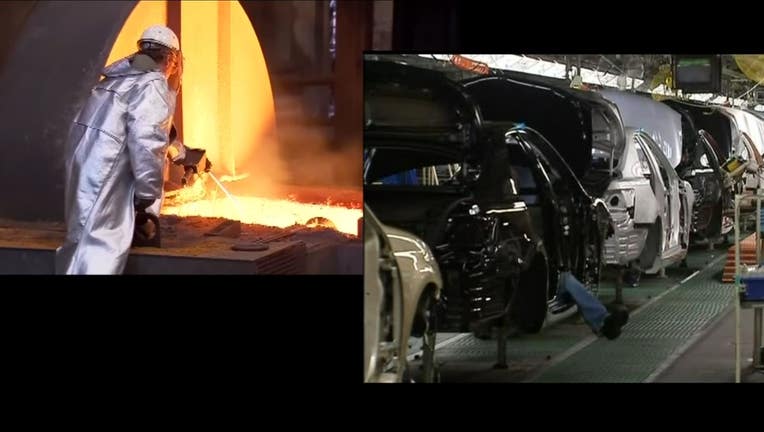Concerns grow over global supply chains as coronavirus slows manufacturing in China

Experts believe at least 5 million businesses worldwide have their products made in China.
(FOX 9) - As the stock market dives, fears over the novel coronavirus destroying the global supply chain are now on the rise as manufacturing has essentially stalled in China.
Experts believe at least 5 million businesses worldwide have their products made in China. As health officials try to contain the virus, the manufacturing slowdown will affect what you can buy at your local stores.

Concerns grow over global supply chains as coronavirus slows manufacturing in China
As the stock market dives, fears over the novel coronavirus destroying the global supply chain are now on the rise as manufacturing has essentially stalled in China.
Supply chains are basically the channels through which we get our day-to-day products. It connects everything from raw materials to the factories, ports and eventually your local Target or Walmart stores.
“Anytime you go to Walmart or Target—any of the local stores a majority of these products are made in China, so what this means is this could potentially impact our day to day lives,” said Karthik Natarajan, an assistant professor of supply chain and operations at the University of Minnesota.
Professor Natarajan is an expert in global healthy supply chains and has been closely monitoring how the coronavirus is making ripple effects on products and companies worldwide.
“Supply chains are basically the backbone of any economy, so anytime supply chains are not functioning well, you’re not able to get products in and out of the country,” he said.
The impact is spread across a variety of industries such as healthcare, technology and the automotive.
“Companies like Toyota actually have plants within the Wuhan region, so they aren’t able to operate their plants at full capacity—Honda actually has three different plants in that same region,” said Natarajan.
Apple recently announced there could be iPhone shortages soon if their plants aren't able to get up and running over the next few weeks. There is, however, a glimmer of hope in the gloomy economic forecast.
“The one silver lining in all of this is the number of cases in China is at least sort of stabilizing, so what we might see is in the next month or two things might start to get better in China, so the supply chains might start to come back online,” said Natarajan.
Natarajan says he doesn't want people to panic but to just be aware of the situation. He says most likely things should stabilize in a few months.

